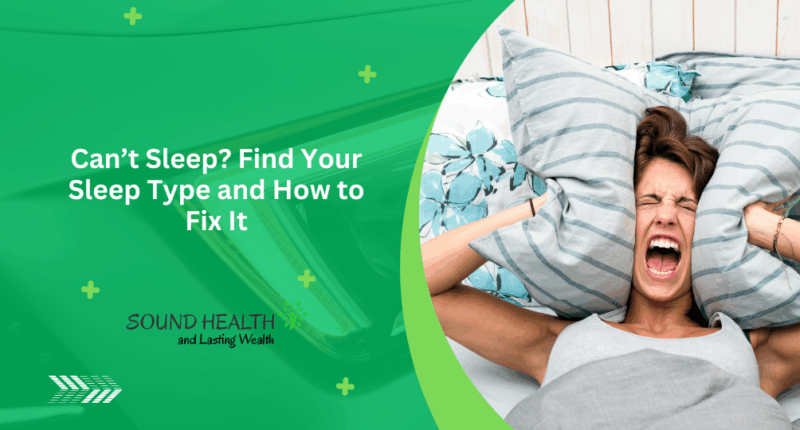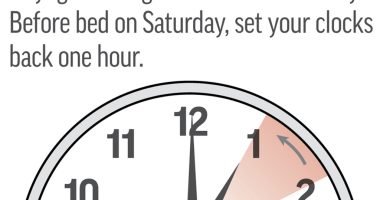Sleep is one of the most essential processes for our physical and mental well-being, yet millions struggle nightly to get restful, restorative sleep. Researchers and clinicians now recognize that sleep challenges are not one-size-fits-all. Emerging evidence identifies distinct “sleep types” or “sleep profiles” that help explain why some people toss and turn, wake unrefreshed, or depend on sleep aids while others maintain sound sleep despite stress. Understanding your unique sleep type can unlock personalized strategies that lead to better rest and overall health. This article breaks down the five scientifically identified sleep types and offers practical, easy fixes tailored to how you sleep best.

What Are the 5 Sleep Types? Your Unique Sleep Profile Explained
Scientists studying sleep patterns have categorized sleepers into five main types based on distinct features, and understanding sleep difficulties begins with recognizing that not all sleep problems are the same. Neuroscientist Dr. Aurore A. Perrault, after studying 770 adults, identified five distinct sleep profiles that reveal how people’s sleep patterns differ and relate to their mental and physical health. These are known as poor sleepers, resilient sleepers, sleep-aid users, short sleepers, and disturbed sleepers:
Poor Sleep Plus Psychological Distress
People in this group have difficulty falling asleep and staying asleep, often waking tired and unrefreshed. They frequently experience anxiety or depression, which both impair and are worsened by poor sleep. This bi-directional relationship makes improvement complex but crucial.Psychological Symptoms with Resilient Sleep
These individuals face emotional stress such as anxiety or low mood but maintain generally good sleep quality. This resilience suggests some can compartmentalize emotional turmoil without letting it disrupt their rest.Reliance on Sleep Medications
Generally healthy and socially active, this group often depends on sleeping aids. While these medications may enable sleep onset, there can be subtle cognitive declines and emotional side effects associated with long-term use.Short Sleep Duration
Characterized by regularly sleeping less than six or seven hours, these people might not perceive daytime impairment yet show declines in attention and memory over time. Chronic short sleep is linked to increased risks of cognitive decline and health problems.Fragmented or Disrupted Sleep
Marked by frequent awakenings, breathing difficulties like sleep apnea, or other interruptions, this group struggles with both mental and physical health due to poor sleep continuity.
These sleep types reveal the diverse nature of sleep challenges and highlight why a single advice plan on sleep hygiene might not work equally well for everyone. Targeted approaches based on your profile can offer more effective relief.
Also Read | Calcium Score Test: How Age Affects Heart Disease Risk
How to Get a Good Night’s Rest Based on Your Sleep Type: Easy Fixes to Try Tonight
“When anxiety is present, insomnia often follows,” explains Shelby Harris, PsyD, DBSM, clinical associate professor at Einstein College of Medicine and author of The Women’s Guide to Overcoming Insomnia. She suggests trying just five minutes of meditation during the day to ease nighttime anxiety. This practice helps calm racing thoughts and improves your ability to refocus, building mental resilience.”

Improving sleep quality requires consideration of your specific sleep type. Below are tailored recommendations informed by expert psychology and sleep medicine:
For Poor Sleep Plus Psychological Distress
Prioritize stress reduction techniques like mindfulness, deep breathing, or cognitive-behavioral therapy (CBT).
Maintain a consistent bedtime and morning wake time, even on weekends.
Minimize screen time and stimulating activities an hour before bed.
For Psychological Symptoms with Resilient Sleep
Continue maintaining sleep hygiene practices to support good sleep.
Seek support for emotional challenges to prevent future sleep disruption.
Consider journaling or relaxation exercises to manage stress.
For Those Relying on Sleep Medications
Consult a healthcare provider about medication use and alternative therapies such as CBT for insomnia.
Gradually introduce sleep-promoting habits like regular exercise and a cool, dark bedroom.
Limit caffeine and alcohol, especially in the afternoon and evening.
For Short Sleep Duration
Adjust your schedule to allow more time for sleep, aiming for 7-9 hours.
Avoid over-scheduling or late-night activities that encroach on sleep time.
Practice wind-down routines, including reading or gentle stretches.
For Fragmented or Disrupted Sleep
Seek medical evaluation for conditions like sleep apnea or restless leg syndrome.
Use white noise or earplugs to reduce disturbances.
Keep a sleep diary to help identify patterns triggering disruptions.
Also Read | Effective Fatty Liver Disease Treatments for Women Over 50
General Tips to Support All Sleep Types
Keep the bedroom cool, dark, and quiet.
Avoid heavy meals and vigorous exercise close to bedtime.
Establish a soothing pre-sleep ritual, such as a warm bath or herbal tea.
Understanding your sleep type helps you apply precise and manageable strategies, which are more likely to produce lasting improvement. For example, if stress triggers your poor sleep, relaxation techniques become your first defense. If medication use defines your sleep, discussing alternatives becomes critical.
Why Knowing Your Sleep Type Matters: The Impact on Health and Well-being
Sleep quality isn’t only about quantity but also about how restorative your sleep cycles are. Research links specific sleep profiles to different risks for mental health conditions, memory problems, and even physical illnesses like cardiovascular disease. Tailored interventions recognize the interplay between emotional health and sleep, moving beyond generic sleep advice. Addressing root causes and matching solutions to your sleep style can prevent long-term negative effects and improve daily functioning.

Experts stress that even subtle differences matter. For instance, fragmented sleep might seem minor but leads to significant fatigue and cognitive decline over time, especially if the underlying cause goes untreated. Meanwhile, the ability to sleep well despite stress points to potential resilience factors you can nurture.
Final Thoughts: Your Personalized Path to Better Sleep
Chronic sleeplessness is far from a universal experience—it varies widely by sleep type and personal factors. Recognizing your sleep profile empowers you to take confident and effective steps toward better rest. The investment in understanding how you sleep can pay off with better mood, sharper thinking, and improved health. If your sleep challenges persist despite these modifications, consulting a sleep specialist is a wise next step.
Sleep is a cornerstone of health, and the good news is that solutions exist that fit your unique sleep type, making restful nights more attainable than ever before.
Also Read | How Exercise Affects Testosterone Levels: What Doctors Say










